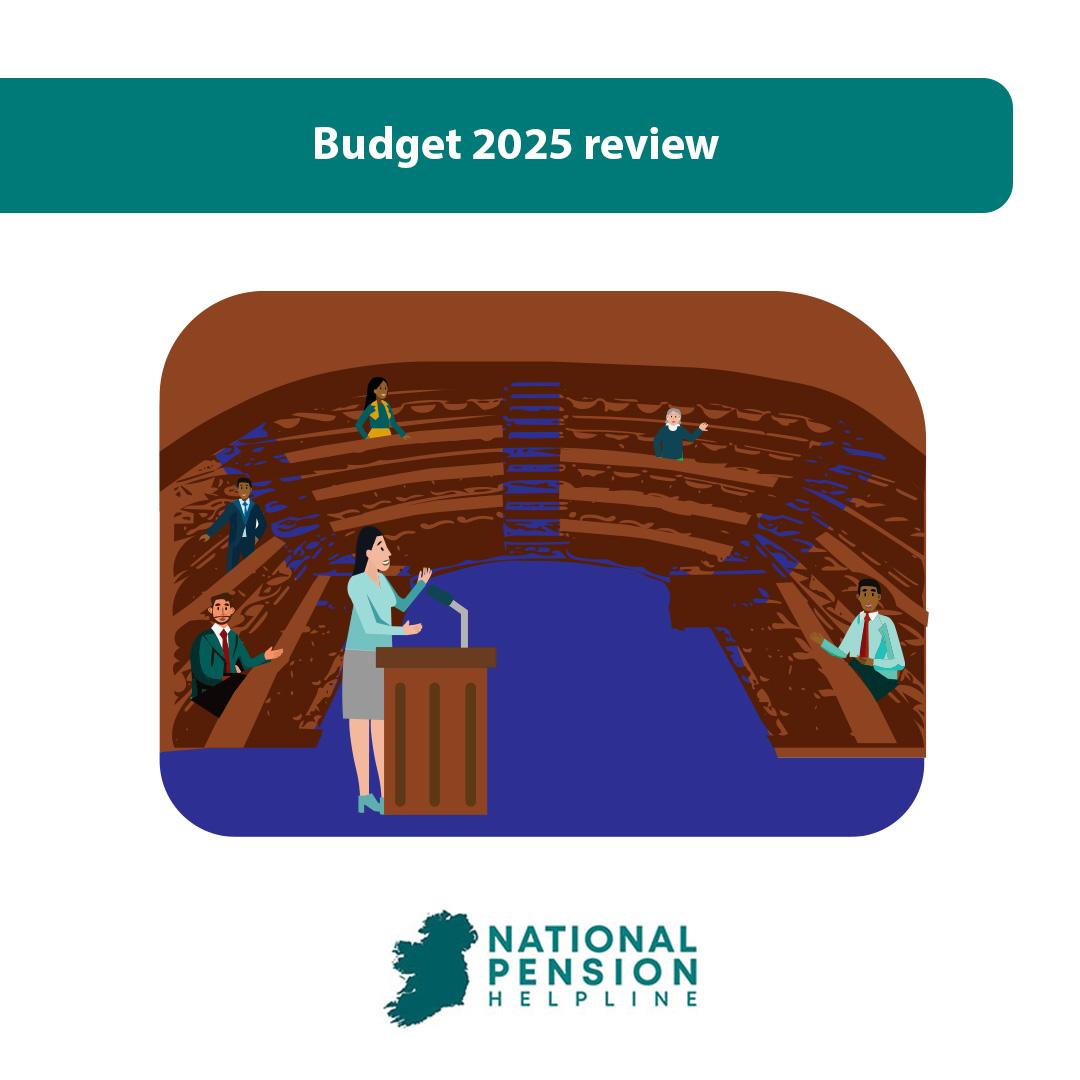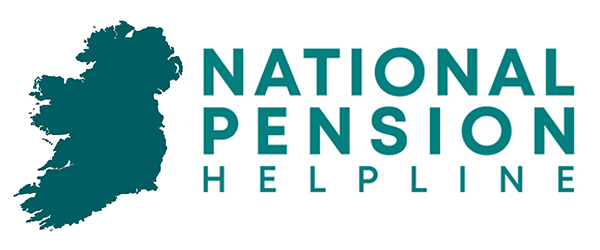Budget 2025 has been widely advertised as offering “the largest social welfare package in the history of the State, providing €2.6 billion to assist households”.
While these seemingly “populist” budgets may prove beneficial when it comes to the polling stations, there’s a real question mark around whether they actually do anything to tackle the real long-term problems facing this country.
Don’t get us wrong, Budget 2025 will certainly provide some additional well needed funding to vulnerable groups such as those with disabilities, those facing the poverty line, carers and many more as outlined here.
However, there are systemic problems that desperately need to be addressed and, unfortunately, one-off handouts from the Government aren’t going to solve these complex issues. No, these problems require lasting and well thought out policy changes – changes that will bring about pivotal and fundamental behavioural shifts for the better.
Given that we are the “National Pension Helpline”, we’re of course going to be biassed towards policy changes that benefit any and all aspects of personal finance – not least of which, pensions.
The initial announcements from Budget 2025 leave much to be desired when it comes to positive policy changes made to the area of personal finance.
In this article, we’ll discuss certain aspects of Budget 2025 and what we at the National Pension Helpline would have liked to have seen done differently.
Exchange-Traded Funds (ETFs)
One of the biggest disappointments to come out of Budget 2025 was the lack of policy changes made to the investment fund taxation regime in Ireland. This includes the taxation of exchange-traded funds (ETFs).
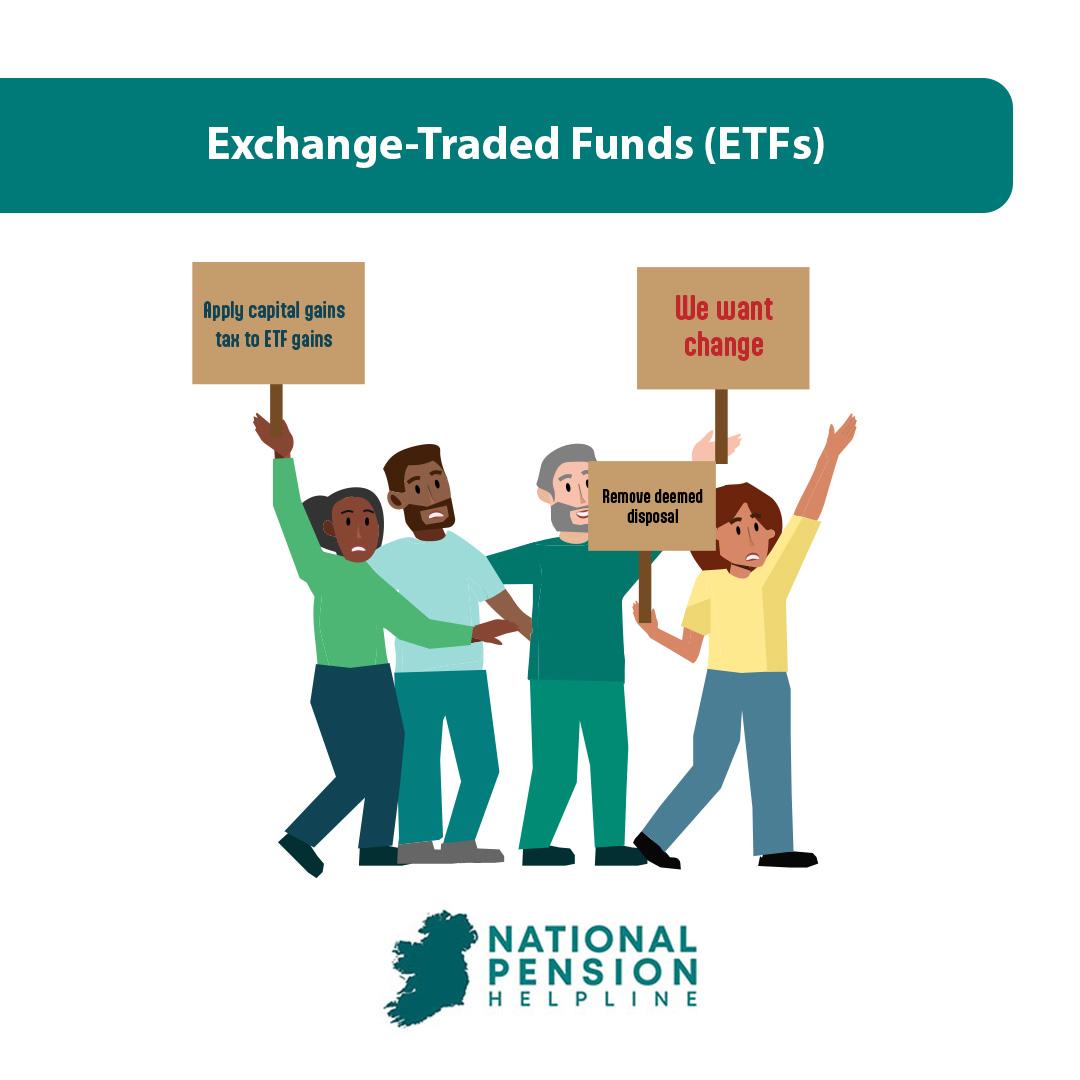
The taxation of ETFs has long been the subject of controversy among retail investors in Ireland. This is because a special rate of tax equating to 41% is levied on the investment gains and income of these investment products.
While the rate of 41% applicable to ETF income is lower than, say, the marginal rates of taxation applicable to dividends earned from company stocks, the same can’t be said for ETF gains.
Ireland operates a flat rate of capital gains tax (CGT) equal to 33% which of course is lower than the 41% applicable to ETF gains. The rationale here is that no Irish taxation is levied on Irish domiciled ETFs at the fund level i.e. the investment income and gains of the fund is exempt from Irish tax.
Thus, tax is solely collected at the investor level, with a higher rate of 41% intended to capture some of the value yielded by investors as a result of enjoying tax-free investment growth for a period of time. However, perhaps the most controversial aspect of the investment fund taxation regime is that of deemed disposal.
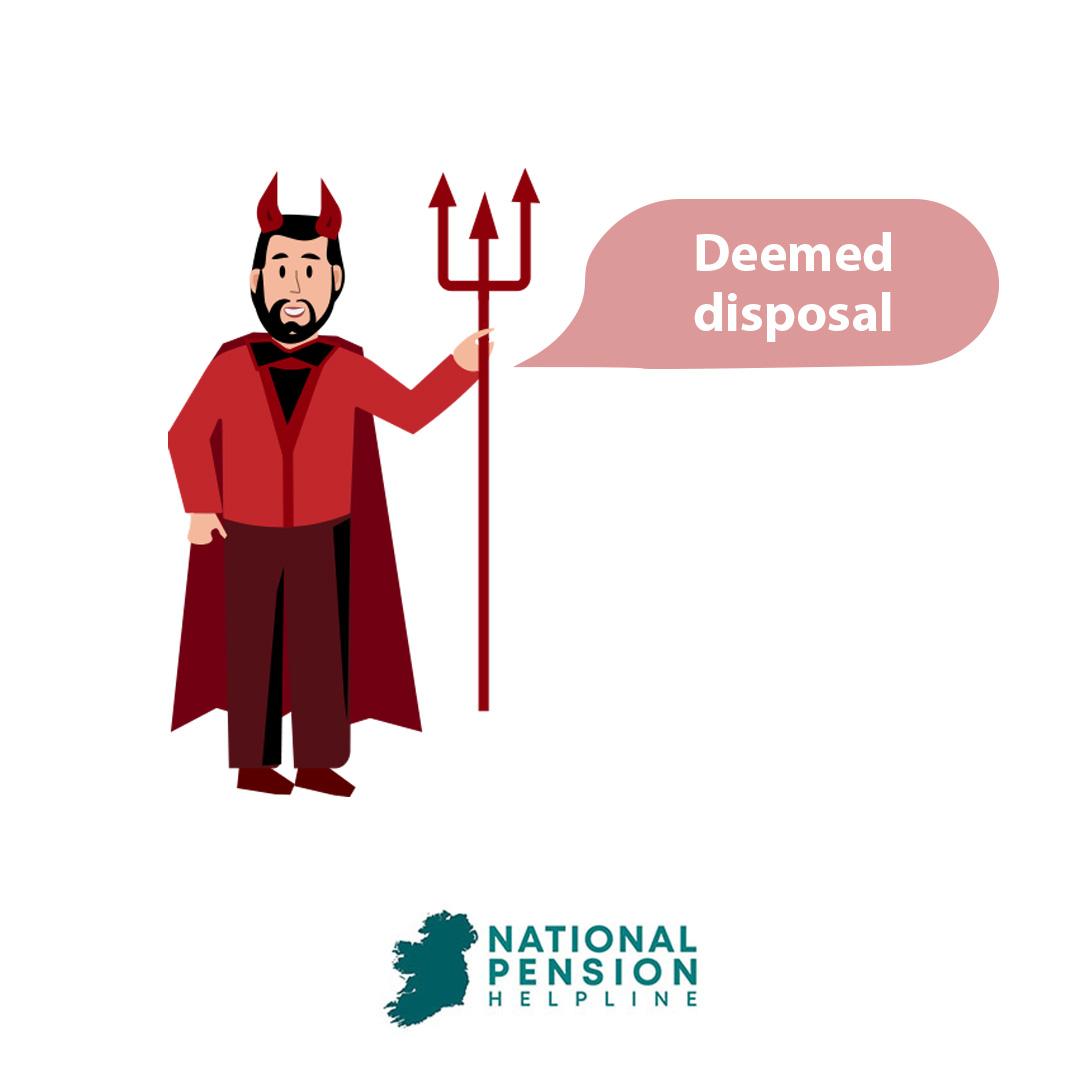
Under deemed disposal, one of the fundamental principles of global taxation is seemingly broken, in that you do not tax unrealised investment gains. Deemed disposal provides that on the 8th anniversary of owning a collective investment product such as an ETF, and every subsequent 8th anniversary, the investor is “deemed” to have immediately sold and reacquired their holding. As a result, a charge to tax becomes due on any gains which have accrued on the investment up to the date of the anniversary.
This isn’t a favourable position for investors, especially for those with large ETF holdings. Reason being, as a result of deemed disposal, they may have to partly dispose of their position in order to cover the tax charge or, alternatively, utilise funds from their bank account to cover the cost. In either case, a real opportunity cost arises for the investor and the total lifetime potential of their investment is significantly impacted.
It’s important to note that there is a method to the madness of deemed disposal. In the case of accumulating funds, where fund investment income is reinvested instead of being distributed, an investor could theoretically hold their position indefinitely without paying any tax. This is because there is no Irish taxation at the fund level and, if the investor were to never sell, there would be no taxation at the investor level either for an accumulating fund. This treatment, if left unchecked, would be akin to the benefits granted to pension investments. Hence why deemed disposal was introduced, to force an event whereby the Exchequer would have the opportunity to collect taxation from the investor.
That being said, we know that ETFs are the single best way for retail investors to invest due to their long-term investment performance, simplicity, low cost structure and a multitude of other benefits. Furthermore, ETFs are a relatively new investment product which differ operationally to the traditional mutual fund structures which were dominant when deemed disposal was initially introduced, giving rise to a potential argument for exclusion from deemed disposal. But above all, given that Ireland is facing an unprecedented State pension crisis due to our rapidly ageing population, it is objectively in the best interests of the Government and the wider State for individuals to be proactively engaging with personal finance and utilising products such as ETFs to grow their wealth.
Retail investors in Ireland were optimistic that positive change was set to come in Budget 2025 due to the ongoing public consultation and review of the Irish funds sector. The results of that review are set to be released soon. However, given that there were no suggested changes to the taxation of investment funds as part of the Budget 2025, it looks as though Irish retail investors will yet again have to wait for the change that so desperately needs to be introduced.
Here are some changes that we would have liked to have seen in Budget 2025 and hope to see introduced going forward:
Pensions
With respect to pensions, in the eyes of the Government, the biggest change in Budget 2025 was the introduction of auto-enrolment from 30 September 2025 which is, quote, “helping almost 800,000 workers save for retirement”.
Those of you who’ve been around here for a while will undoubtedly know that this is largely a “politically positive” statement which, in reality, has little substance in the way of true long-term value to individual Irish investors.
We here at the National Pension Helpline have been quite vocal on our doubts around the value of auto-enrolment and wholeheartedly believe that anyone in this group of 800,000 who actually cares about saving for retirement would be far better off taking matters into their own hands today and using a product such as a personal retirement savings account (PRSA).
As we see it, auto-enrolment really only stands to benefit those who would never, or are unlikely to ever, take a proactive approach towards their retirement planning.
However, it is largely a failure on the part of the Government that Irish citizens are not adequately educated on the fundamental importance of retirement planning to begin with, namely:
However, it hasn’t been all bad when it comes to pensions. As part of Finance Bill 2022 for example, changes were made so that employer contributions made to an employee’s PRSA were no longer treated as a contribution by the employee themselves, thus freeing up the employee’s full age-related pension contribution limit for use.
This originally meant an employer could technically make unlimited contributions to an employee’s PRSA tax-efficiently, arguably making PRSAs one of the most attractive products to use for both employers and employees alike. However, as part of Finance Bill 2024, an employer contribution cap equal to 100% of an employee’s emoluments in a given year of assessment has been introduced, thus limiting the extent of the aforementioned tax planning opportunity.
Finance Bill 2024 also introduced changes to the Standard Fund Threshold (SFT), whereby for the following years of assessment, the following SFTs will apply:
The National Pension Helpline would also like to see an overall increase as well as indexation of the level of tax-free lump sums available from pensions in addition to policy changes which would allow the backdating of unused pension contributions by individuals.
Again, the caveat being that these limits would be generous enough to allow for meaningful retirement planning while simultaneously not causing undue hardship on the receipts of the Exchequer – a delicate balance indeed.
Income Tax & Capital Acquisitions Tax
As can be seen in Image 1, the Government is set to introduce changes to the standard rate income tax cut-off band, tax credits and USC, all of which will benefit Irish taxpayers. This is set to cost the Exchequer ~€1.29bn.
As we noted in a recent article, many tax measures that have been introduced in recent budgets have been targeted at the so-called “squeezed middle”, given that recent research suggested that Ireland had the fourth highest effective tax rate at average salary levels among a set of examined countries.
While progressive tax systems, like Ireland’s, are undoubtedly positive in terms of their fairness, a delicate balance needs to be struck in order to ensure that those in the middle are not disproportionately taxed.
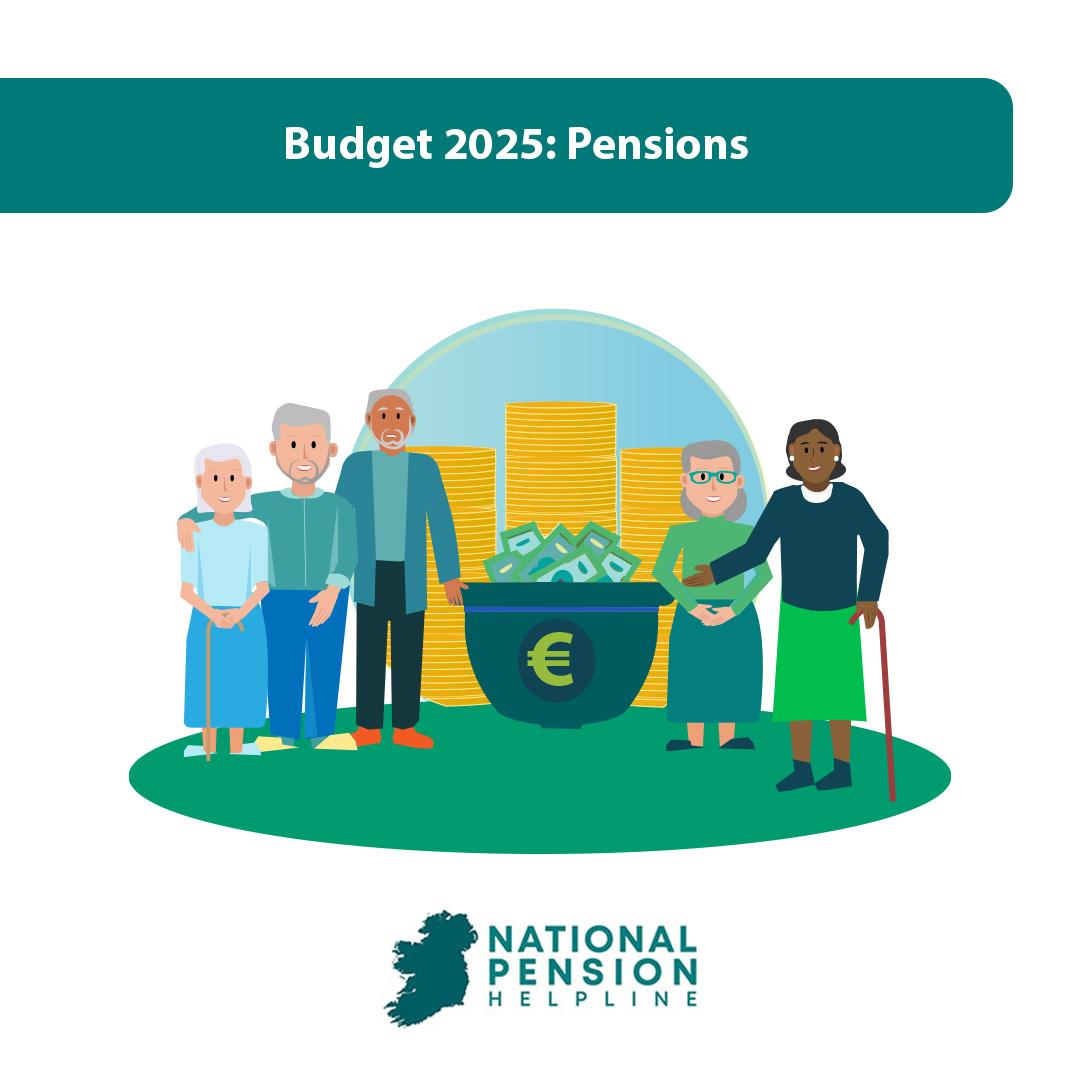
| Table 1: Tax measures for introduction in 2025, € million | ||
| Taxation Measures to Support Households and Workers | ||
| Personal taxation: supporting workers | First year Cost/Yield |
Full-year Cost/Yield |
| Income tax | -1,120 | -1,290 |
| Increase of €2,000 in the income tax standard rate cut-off point | ||
| Increase of €125 in the Personal Tax Credit | ||
| Increase of €125 in the Employee Tax Credit | ||
| Increase of €125 in the Earned Income Credit | ||
| Increase of €150 in the Home Carer Tax Credit | ||
| Increase of €150 in the Single Person Child Carer Tax Credit | ||
| Increase of €300 in the Incapacitated Child Tax Credit | ||
| Increase of €300 in the Blind Person’s Tax Credit | ||
| Increase of €60 in the Dependent Relative Tax Credit | ||
| USC | -470 | -540 |
| Increase the 2% rate ceiling by €1,622 | ||
| Reduce the 4% USC rate to 3% | ||
| Sea-going naval personnel tax credit | ||
| Extend the Sea-going naval personnel tax credit to 31 December 2029 |
-0.5 | -0.5 |
Capital Acquisitions Tax
As can be seen in Image 2, the Government has increased each of the three thresholds applicable to capital acquisitions tax (CAT) in Ireland. The Group A threshold increased by 19.40% in monetary terms while both Group B and Group C increased in monetary terms by 23.07%.
While all changes to the thresholds are welcome, it is the Group A threshold which inevitably receives the most attention as this is the threshold that is applicable to gifts and inheritances from a parent to a child.
Due to rising house prices in Ireland, many children who inherit the family home are forced to sell the property in order to cover the CAT bill as the market value of the inheritance significantly exceeds the available threshold (previously €335,000).
This could be in direct contravention to the wishes of the deceased and/or their inheritors, resulting in a less than ideal scenario.
While the threshold increases as part of Budget 2025 are a good start, the National Pension Helpline would encourage the Government to continue to increase these thresholds in line with inflation and/or rising asset prices to account for the reality of the wider macroeconomic circumstances in which gifts and inheritances are being made.
Furthermore, as we mentioned in a recent article on estate planning in Ireland, we believe the conditions for dwelling house relief are too strict. We would like the following changes to be applied:
| CAT Thresholds | ||
| Increase Threshold Cat A to €400,000 | ||
| Increase Threshold Cat A to €40,000-21.9 | -21.9 | -88 |
| Increase Threshold Cat A to €20,000 | ||
Closing Words
All-in-all, Budget 2025 could largely be seen as a populist budget, likely designed to assist in the polling stations next year. While beneficial in the short-term, true value-adding policy changes are needed to address longer-term issues such as the unfavourable taxation of ETFs, the State pension crisis, the insufficient funding of private pensions and much more. That said, the changes made to the standard fund threshold, CAT thresholds and effective tax rates in Budget 2025, while not perfect, are indeed steps in the right direction.
